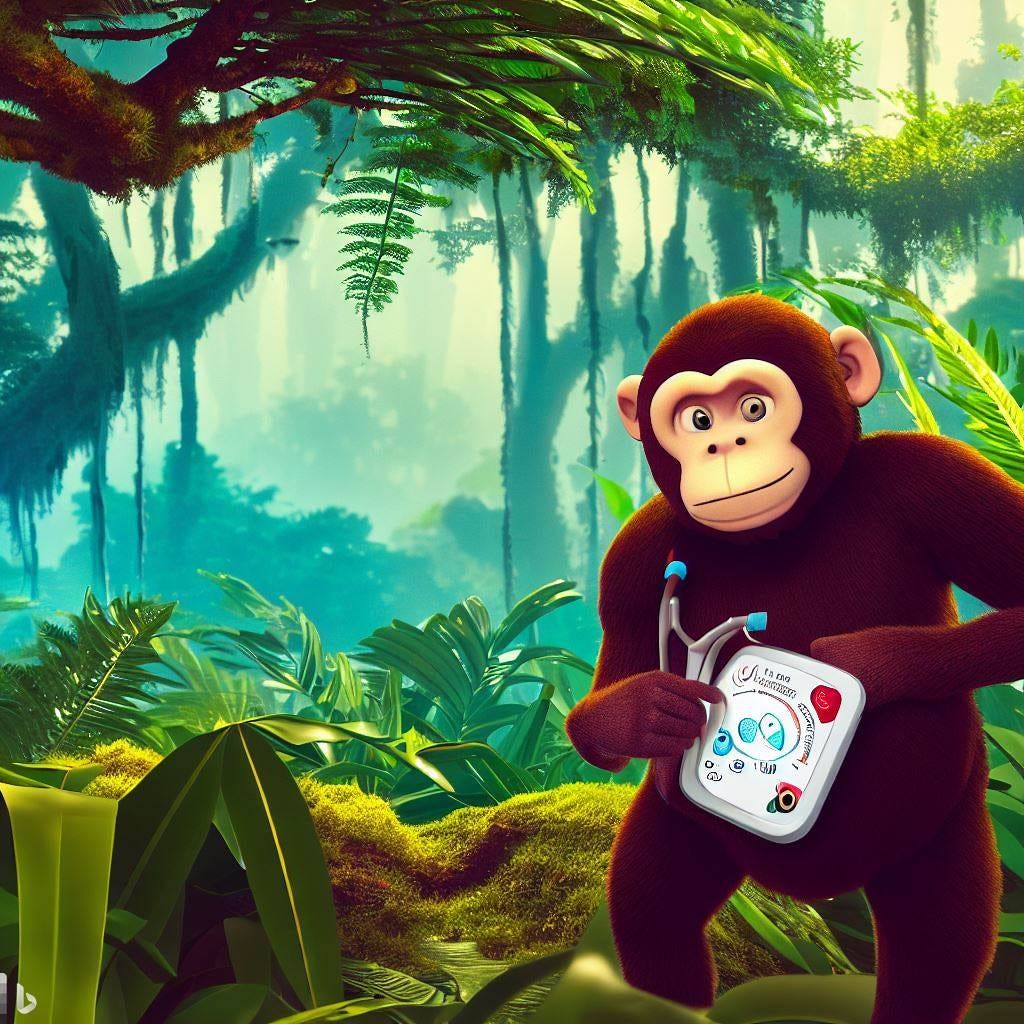Personal Science Week - 230420 Curiosity
Is curiosity really a virtue? After all, it killed the cat
Personal Science is a mindset that values curiosity, open-mindedness, and a desire for first-hand answers to questions. But what is curiosity, exactly?
A History of Philosophy podcast discussion with science historian Lorraine Daston reminds us that early proto-scientists of the Renaissance had to confront a tradition where curiosity was considered, at best, a distraction from more noble thoughts. Even today we say “curiosity killed the cat”. A museum of “curiosities” is stuffed with freaks of nature. Where did Personal Scientists get the idea that curiosity is good?
Since the time of Aristotle, Western thinkers stressed the importance of general explanations for phenomenon. This traditional view suggested that if you want to understand how, say, people keep their balance, the last thing you would do is actually try to measure it1. After all, you can’t possibly measure everyone at all times. A great mind finds generalizations that explain a variety of phenomenon. Exceptions are, well, curiosities that deserve no more attention than anecdotal accounts of space aliens. In fact, the Greek word “curiosity” (periérgeia περιέργεια) was a synonym for nosiness.
Personal Science often involves the opposite mind set. We look at our own specific situations, trusting our own self-collected data or that of people we know.

We reviewed Strevens’ book and more philosophy of science-related references in Personal Science Week - 29 Dec 2022, when we noted that a key driver of modern science is the new, unprecedented interest in actual data, not generalizations. It was curiosity — about why some specific number didn’t match expectations — that drove the scientific revolution, and is central to Personal Science.
Links of Interest
Speaking of curiosity, “What You Can’t Say” is a classic short essay by venture capitalist and Y-Combinator founder Paul Graham on “moral fashions”. It’s a reminder of the importance of holding opinions that would make you unpopular if your peers find out.
An excellent 22-minute YouTube video from VSauce asks “Did People Used to Look Older?”. It examines, with great in-depth references and examples, the way people from past decades seem to look older than they do today.
Weather forecasts have been published daily for years. What happens if you go back in time to see which ones were the most accurate? At forecastadvisor.com enter a ZIP code and find out.
Are you using Google Alerts? Google’s search engine prowls the internet 24x7 and you can get it to send you an email whenever it runs into a keyword of interest. I have mine set to tell me every time it sees my name or email address. There is a separate service from Google Scholar that will do the same for academic papers. Mine lets me know, for example, if anyone ever publishes something that uses uBiome microbiome data. (Here’s how).
About Personal Science
Trust the experts, we’re told. But which experts? “You can find a credentialed PhD on the other side of literally any scientific issue”, says the intellectual writer and podcaster Sam Harris. As Personal Scientists, we make up our own minds, asking questions about everything, but placing extra trust in what we are able to prove for ourselves, using our own self-collected data.
Be sure to check out the new Personal Science Tips page (under construction). We’re trying to summarize all of these weekly links and tips into a single document for easy reference and downloading. We have two ebooks so far, one for the microbiome and another for CGM and we’re making more. Check them out and let us know what you think.
We suggested ways to measure your balance in Personal Science Week - 10 Nov 2022. By contrast, Aristotle, in De Anima, proposed that balance is a form of vertigo, caused by a disturbance in the body’s equilibrium. From that perspective, what’s the point of quantifying it for one person?
